12-06-2020 | di COOPI
North Darfur. A fast answer to the flood rebuilt communities' livelihoods
Nearly one year after the flood that hit the town of Al Kuma (80 km North of El Fasher, North Darfur, Sudan), monitoring reports indicate that COOPI intervention in the area helped in re-establishing the livelihoods of the affected population thus contributing to Sudan 2019 humanitarian objectives – specifically providing population affected by natural or man-made disasters with timely assistance during and in the aftermath of a shock.
On the 7th July 2019 a hheavy rain of 80 millimeters hit the town of Al Kuma, resulting into floods and affecting 867 households, two schools, one health facility, three water sources, the market and part of the main road connecting El Fasher and Khartoum. Thanks to the implementation of joint emergency projects, COOPI provided a fast and efficient answer not only responding to people immediate needs but also supporting them in restoring their livelihoods.
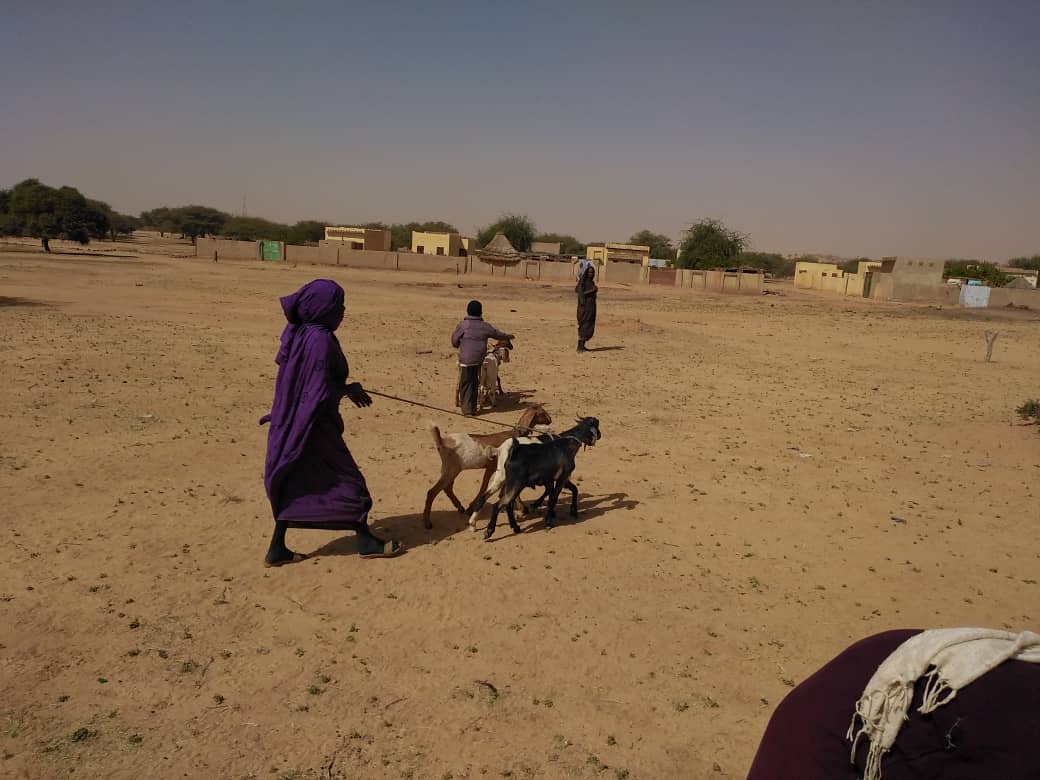
Woman beneficiary of livestock distribution
Under the project “Emergency intervention to restore water access and foster resilience of refugees, IDPs and vulnerable host communities in North Darfur” funded by the European Union Humanitarian Aid, COOPI distributed non-food kits (NFI) to 200 affected households. The NFI kits included 1 plastic sheet, 2 sleeping mats, 2 blankets, a cooking set, 1 jerrycan and 2 mosquito nets.
In the framework of the project “Emergency intervention to protect livelihood of vulnerable individuals affected by floods in Kuma locality, North Darfur” funded by the Sudan humanitarian fund, COOPI selected 586 households (3,516 individuals) for livestock assets distribution. Among these, mostly were women who lost their small ruminants during the flood. This activity was essential to farmers since their main means of subsistence is small ruminant rearing.
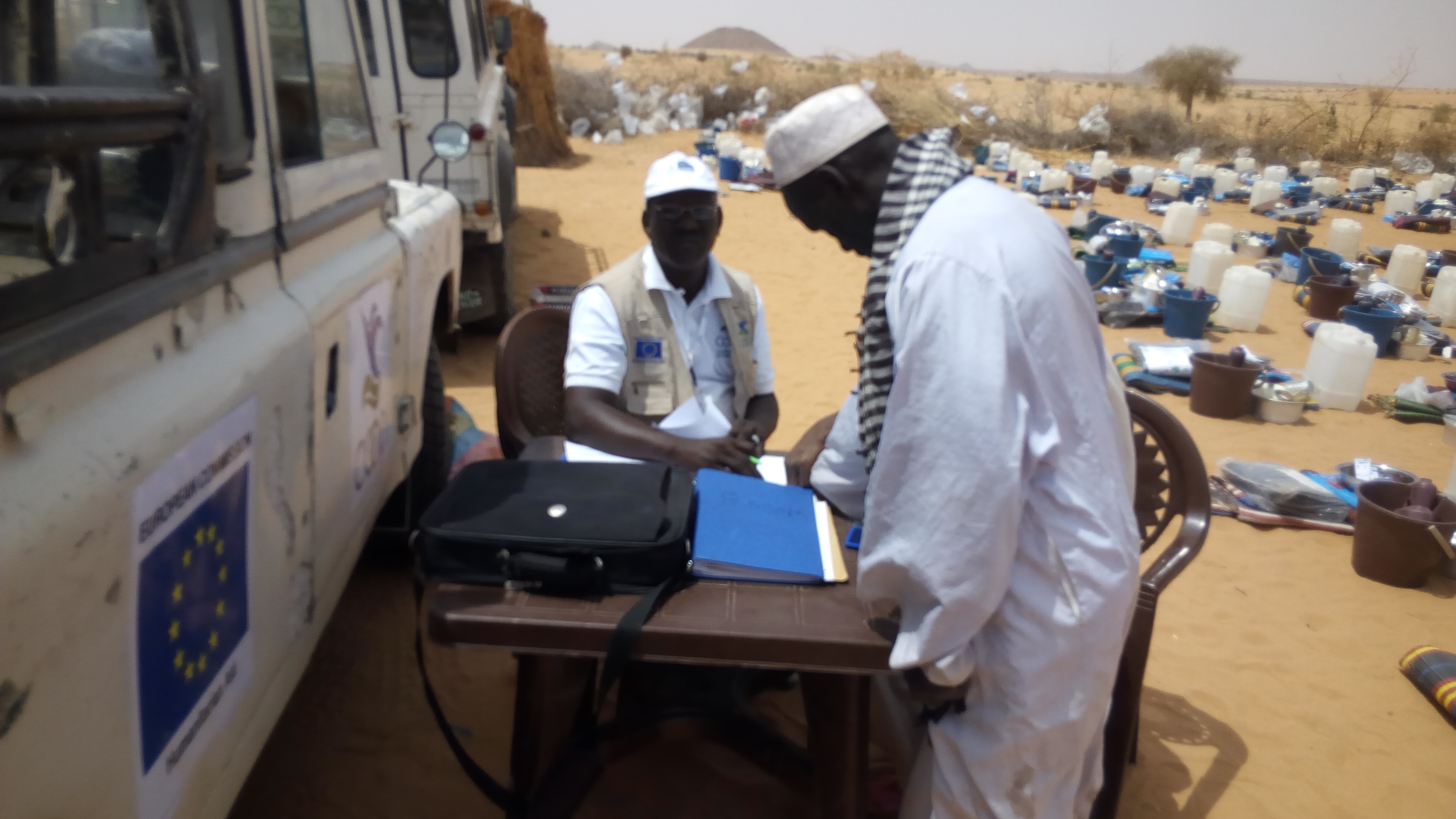
NFI kit distribution
In partnership with the representative of the affected population, the State Department of Animal Resources and locality administration, COOPI procured and distributed 1,758 female goats (three per household). To improve adaption and survival, a local procurement was favored. Moreover, a local veterinary officer inspected goats and provided basic treatment and vaccination before distribution.
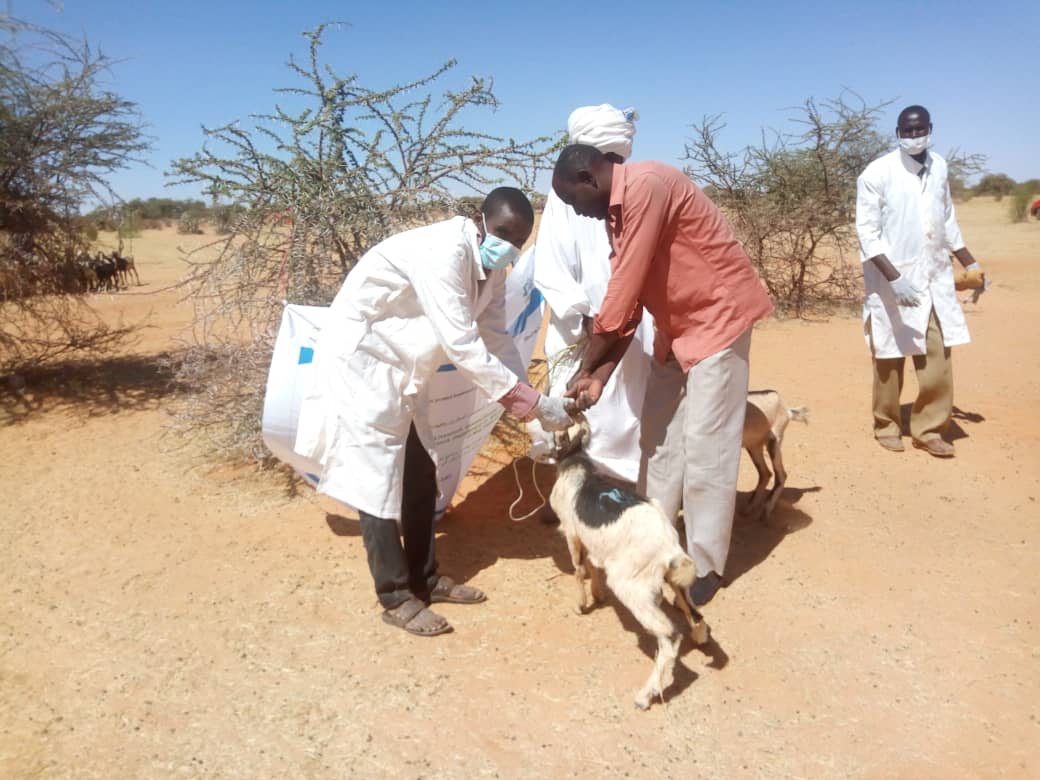
Animal's treatment and vaccination
Eltaher Hamen Saleh Tom, 40 years old and head of a 7 persons household is one of the beneficiaries: “Due to the flood, I lost my house, my food stock and a part of my livestock. Nevertheless, thanks to the project I received three goats that we use as breeding stock. By allowing the animals to multiply, I expect to get more milk to improve my family’s nutrition and generate income through the sale of milk and livestock as well”.
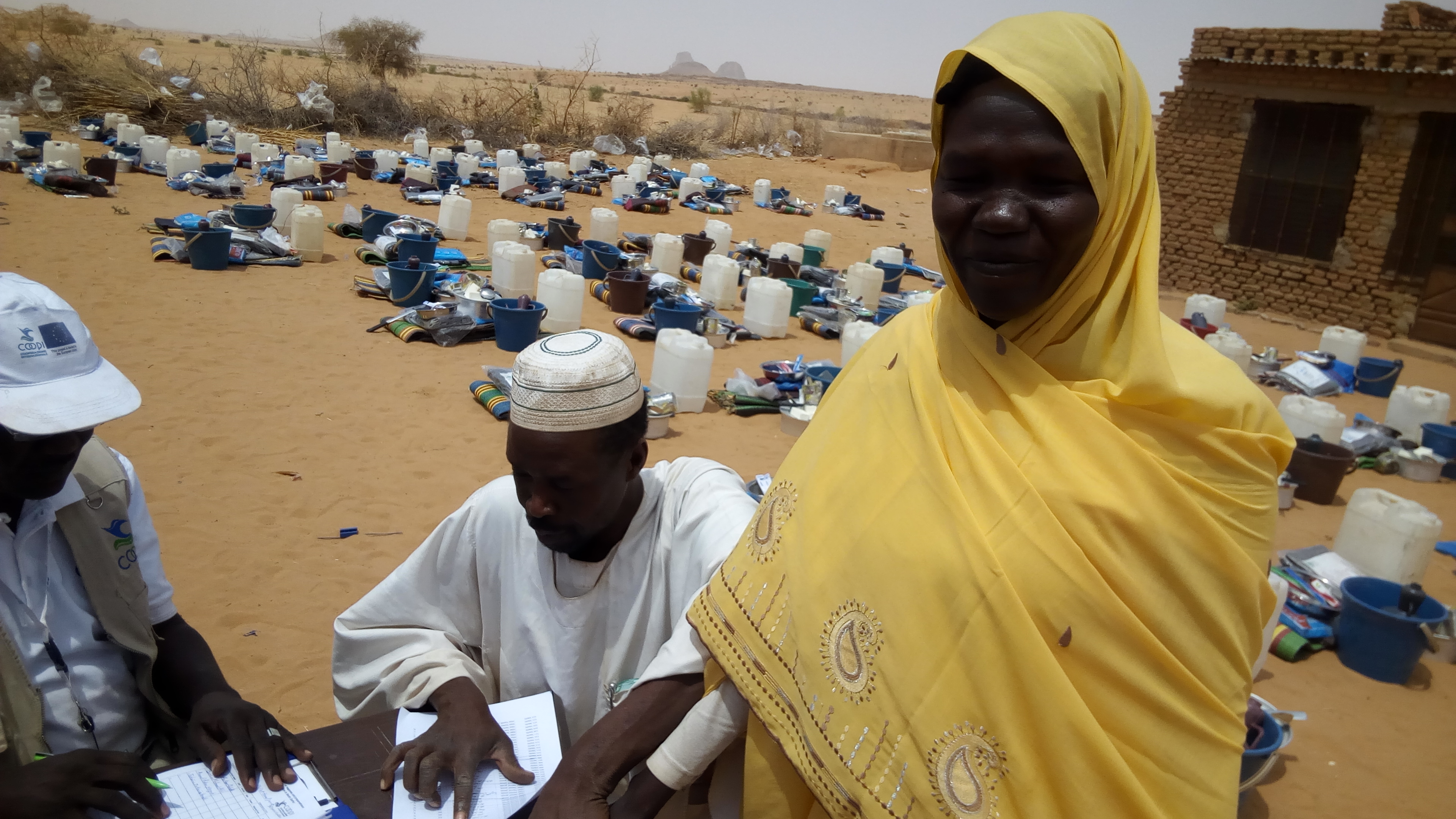
Kit distribution
Halema Ahmed Abas, 51 years old and mother of 5 children lost her house, her household’s furniture, toilet, clothes and bedsheet. “Thanks to the livestock assets, I expect to get an income through sales of milk in the immediate future. Moreover, I am willing to sell livestock in about one year. I will meet my family’s needs thanks to the money I will earn”.
Um Eid Guma Khaleda, 42 years old and head of a family composed by 8 members, is also one of the beneficiaries. She lost her house, her grain store and her furniture. Now, thanks to the project’s implementation, she feels the family’s asset base has increased and she is confident that the goats will multiply to provide the family milk for home consumption. She also expects to sell milk and fattened goats in future to get more income to improve the status of her family.
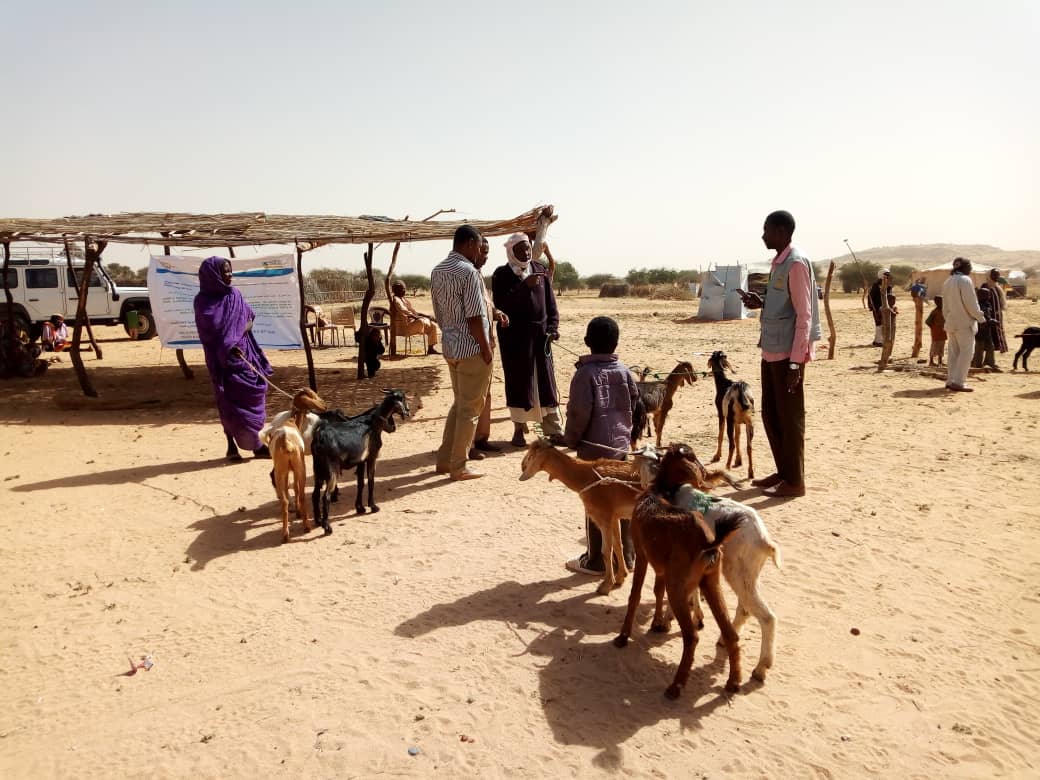
Livestock distribution
Last year flood resulted into loss and destruction of household’s livelihoods asset and food stocks as the flood washed away and drowned herds of livestock, especially small ruminants. Community leaders also reported a reduced availability of food, considering that commodities stored in the market and at household level were also washed away. Thanks to the European Union Humanitarian Aid and Sudan Humanitarian Fund funded projects COOPI met people’s immediate needs and rebuilt their asset base.
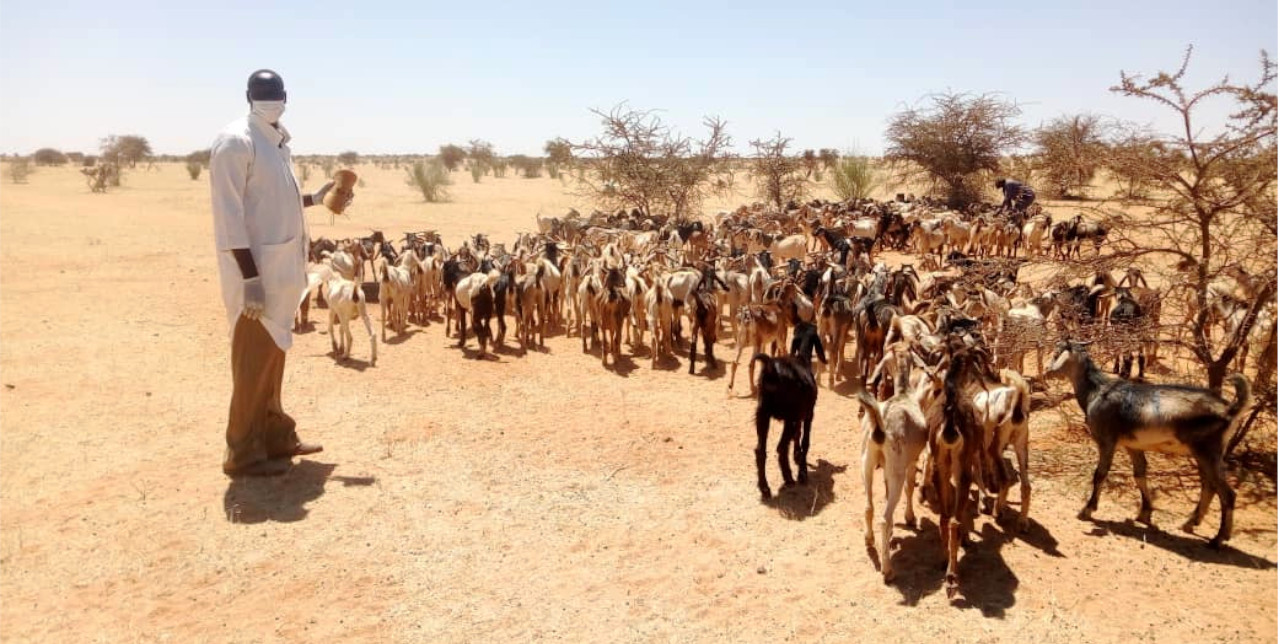



 Sudan
Sudan